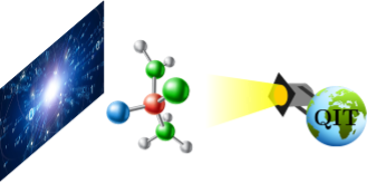
- This event has passed.
Entanglement in Identical Particle Systems: Foundation and Applications

Christian Schilling (Sommerfeld Centre for Theoretical Physics, LMU Munich)
Entanglement is a fundamental feature of the quantum world and a key resource for quantum information processing. While the concept of entanglement for distinguishable particles is well established, its validity for identical particles remains a subject of debate and misconceptions. In this talk, we resolve this foundational issue: We demonstrate that identical particles do not form proper subsystems, rendering the concept of entanglement inapplicable to identical particles in first quantization. However, in second quantization, where the focus shifts from particles to the inherently distinguishable orbitals, entanglement becomes well-defined. We then systematically apply this perspective to physics and chemistry. In particular, we show how quantum phase transitions manifest within this framework and how it provides a deeper understanding of chemical bonding. Furthermore, we propose a systematic approach to enhancing wave function methods for strongly correlated electron systems, relevant to both classical and quantum computing. Altogether, these insights highlight the deep connection between quantum information and many-body physics, demonstrating fruitful synergies that can foster the second quantum revolution.
[1] D.Aliverti-Piuri, J.Liebert, C.Schilling, forthcoming
[2] D.Aliverti-Piuri, K.Chatterjee, L.Ding, K.Liao, J.Liebert, C.Schilling, Faraday Discuss. 254, 76 (2024)
[3] K.Liao, L.Ding, C.Schilling, J. Phys. Chem. Lett. 15 , 6782 (2024)
[4] L.Ding, S.Knecht, C.Schilling, J. Phys. Chem. Lett. 14, 11022 (2023)
[5] L.Ding, S.Mardazad, S.Das, S.Szalay, U.Schollwöck, Z.Zimborás, C.Schilling, J. Chem. Theory Comput. 17, 79 (2021)
Contact : C. Mejuto Zaera
